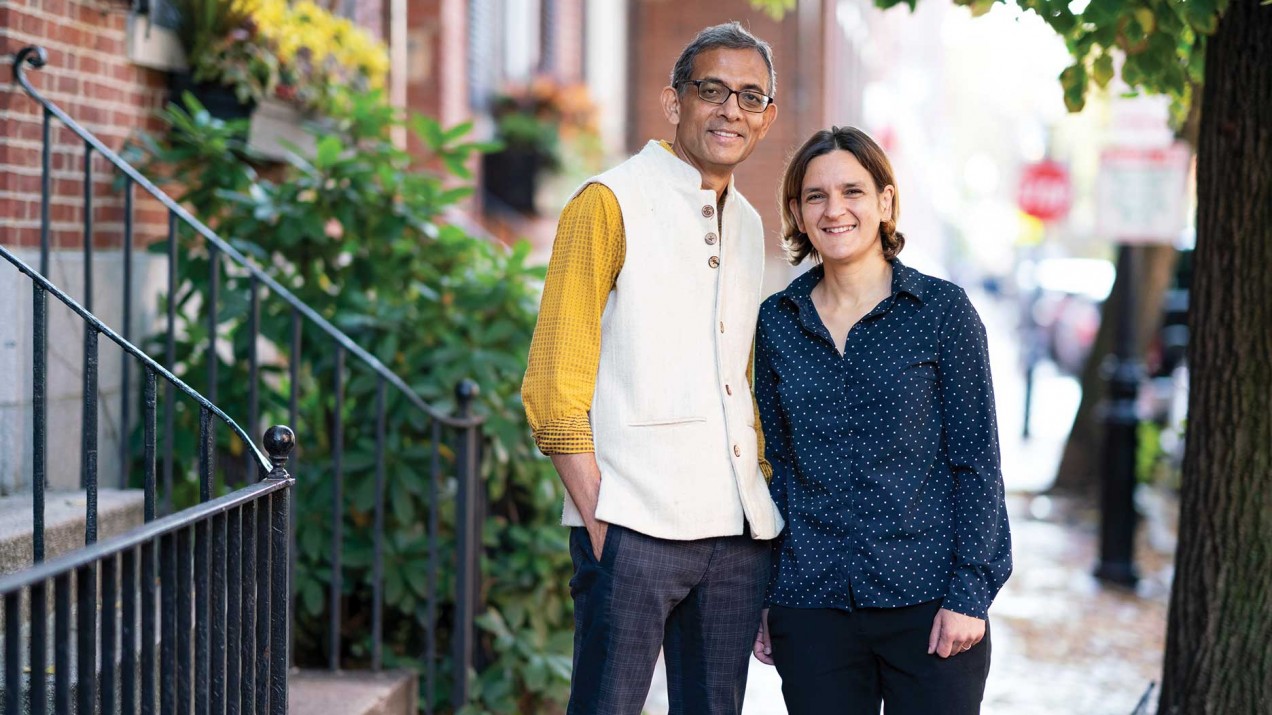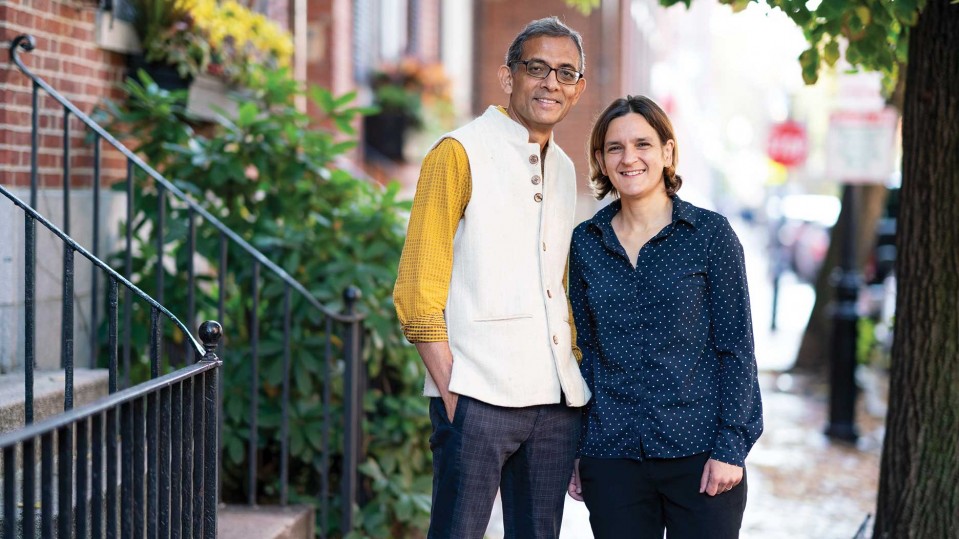

Double Nobel
Economists Duflo and Banerjee have pioneered a new approach to antipoverty research.

Esther Duflo, PhD ’99, and Abhijit Banerjee, MIT economists whose work has helped transform antipoverty research and relief efforts, received the 2019 Nobel Prize in economics along with Harvard University economist Michael Kremer, a former MIT postdoc and faculty member who was at the Institute from 1992 to 1999.
The economists have done innovative work in development economics, emphasizing the use of field experiments to realize the benefits of laboratory-style randomized, controlled trials. Duflo and Banerjee have applied this new precision to study a wide range of topics implicated in global poverty, including health care, education, agriculture, and gender issues, and developed new antipoverty programs based on their research. In one widely noted experiment, they found that immunization rates for children in rural India jump dramatically when their families are offered modest incentives such as a couple of pounds of free lentils. Other studies have involved fertilizer use by Kenyan farmers, physician training in India, HIV prevention in Africa, the effects of small-scale lending programs, and the impact of aid programs in Indonesia.
Duflo and Banerjee also cofounded MIT’s Abdul Latif Jameel Poverty Action Lab in 2003, along with a third cofounder, Sendhil Mullainathan, now of the University of Chicago. J-PAL, a global network of antipoverty researchers that conducts field experiments, facilitates such work across the world and works with governments and NGOs to implement the interventions with the greatest impact. Among J-PAL’s notable innovations are deworming programs that have been adopted widely.
“By providing an experimental basis for development economics, professors Banerjee and Duflo have reimagined their field and profoundly changed how governments and agencies around the world intervene to help people beat poverty,” President L. Rafael Reif said at a press conference. “In doing so, they provide a proud reminder of MIT’s commitment to bringing knowledge to bear on the world’s great challenges.”
Melissa Nobles, the Kenan Sahin Dean of MIT’s School of Humanities, Arts, and Social Sciences, added: “The significance of Abhijit’s and Esther’s scholarship is not only that it has transformed the ways in which economists and policymakers think about and approach poverty alleviation, but that, at the core, their research is guided by deeply humanistic values. In their vision, the materially poor are at the center, as are remedies for global poverty that actually work, that open doors for millions to education, health care, economic well-being, and safe communities—to the full promise of human life.”
Duflo, 46, is the second woman and the youngest person ever to receive the Nobel in economic sciences; among other honors, she also won a MacArthur “genius” grant in 2009. She and Banerjee, who are married, are the sixth and seventh people to win the award as MIT faculty members, following Paul Samuelson (1970), Franco Modigliani (1985), Robert Solow (1987—see “The productive career of Robert Solow,” page 10), Peter Diamond (2010), and Bengt Holmström (2016). Twelve alumni (including Duflo) and eight former faculty members have won the award.